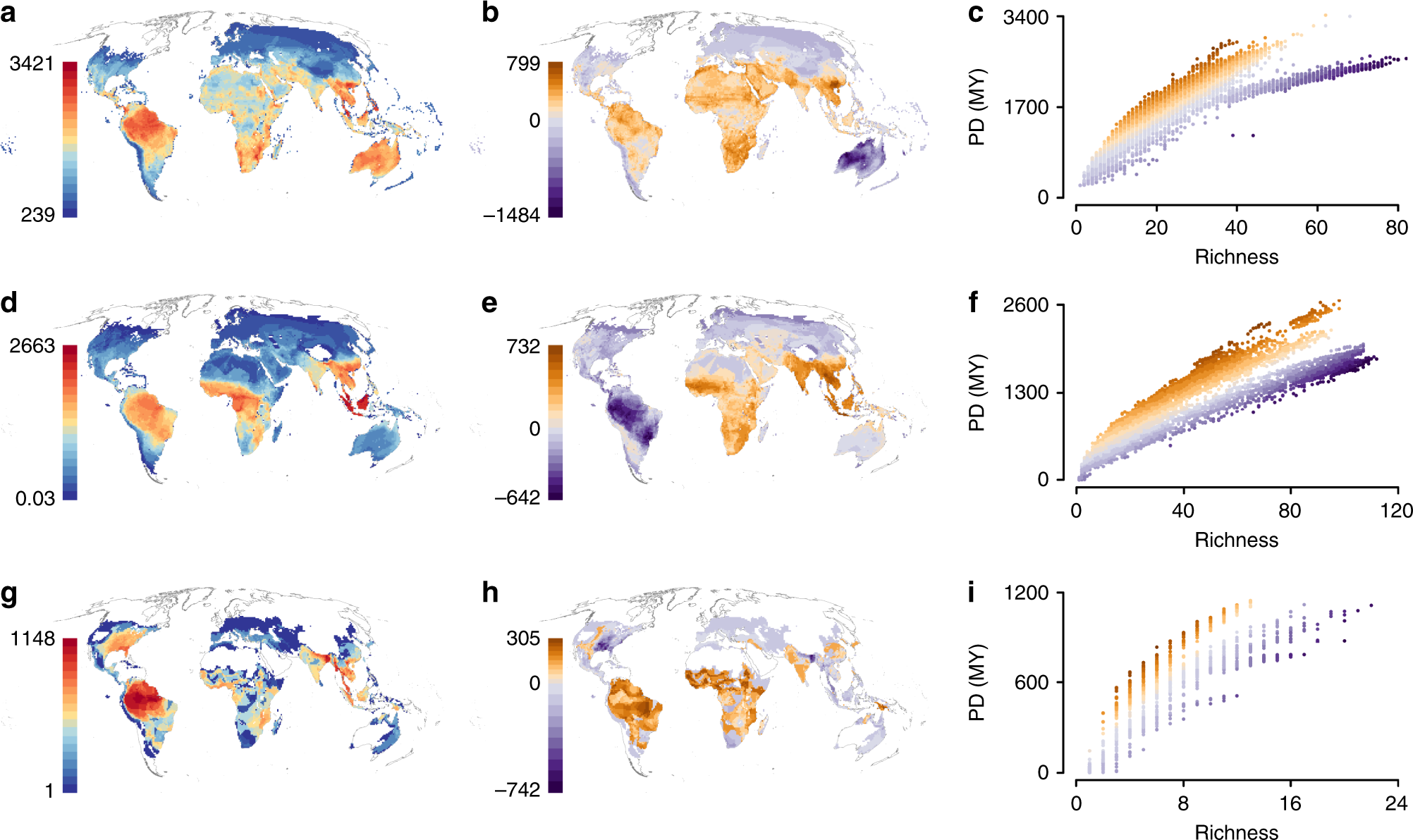Environment & Energy
Related: About this forumHuman Footprint Threatening Nearly 50 Billion Years of Evolutionary History: Study
Published on
Tuesday, May 26, 2020
by Common Dreams
"Our findings indicate that the magnitude of our impact as a species on the natural world is incomprehensibly large, and appears to be overwhelmingly impacting the most irreplaceable areas and species on the planet."
by Andrea Germanos, staff writer

Will it be good-bye, Aye-aye? (Photo: Sylvain Cordier/Gamma-Rapho via Getty Images)
Human activities threaten to saw off branches of the "tree of life"—putting irreplaceable species at risk of extinction.
So finds a study published Tuesday in the journal Nature Communications which highlights the need for urgent conservation actions.
Barring such action, the researchers wrote, "close to 50 billion years" of evolutionary history worldwide is at risk.
Scientists from Imperial College London and the Zoological Society of London (ZSL) began their research by first analyzing the world's reptiles and then terrestrial vertebrates like amphibians, birds, and mammals, looking at how areas with a high human footprint—including factors like deforestation and population density—coincide with areas containing species with unique evolutionary history, or branches on the tree of life.
The scientists found a troubling overlap, with areas in the Caribbean, the Western Ghats of India, and large parts of Southeast Asia singled out as experiencing both extreme human pressures and unique biodiversity.
More:
https://www.commondreams.org/news/2020/05/26/human-footprint-threatening-nearly-50-billion-years-evolutionary-history-study
mopinko
(70,024 posts)let this little light shine, and rage against the night.
Response to Judi Lynn (Original post)
exboyfil This message was self-deleted by its author.
jpak
(41,757 posts)And the Universe is 14 billion years old.
WTF
I can only hope it was a typo for "million"
ETA: I see below there is a technical explanation... This seems like an unfortunate unit (kind of like the rocket scientists' "specific impulse" measured in seconds)
RussellCattle
(1,530 posts)...existence of other species, I've got to point out that the reference to "close to 50 billion years" is a bit of an overstatement. The entire universe is only 13.8 billion years old and life on earth has been around for only 3.5 billion years. Please make your point without the unnecessary exaggeration, if for no other reason that it confuses people about the facts.
RussellCattle
(1,530 posts)hatrack
(59,578 posts).
RussellCattle
(1,530 posts)Alex4Martinez
(2,193 posts)The years of evolution are cumulative over various classes of organisms:
"Our analyses reveal the incomprehensible scale of the losses we face if we don't work harder to save global biodiversity," said Gumbs. "To put some of the numbers into perspective, reptiles alone stand to lose at least 13 billion years of unique evolutionary history, roughly the same number of years as have passed since the beginning of the entire universe."
Fig. 2: Global patterns of reptilian phylogenetic diversity (PD).
From: Global priorities for conservation of reptilian phylogenetic diversity in the face of human impacts

Cumulative PD, in millions of years (MY) (left), Middle: residual PD per grid cell, in MY, (warm colours: more than expected given richness, cold colours: less than expected given richness), Right: the relationship between richness and PD across all grid cells from the middle panels for lizards (a–c), snakes (d–f), and turtles (g–i), with colours corresponding to the grid cell values from the middle panels.
billh58
(6,635 posts)pointing out the rationale behind the "50 billion years" cumulative number.
bronxiteforever
(9,287 posts)exboyfil
(17,862 posts)Still seems like a very arbitrary number. Off the bat one organism's extinction is 3.5 B of evolutionary history (let's say an archea). Next take a bacteria. Now we are at nearly 7 billion years because the split happened very early on. Then you have the cross gene transfer to contend with. Every living branch that gets pruned continues to accumulate lost evolutionary history. Then you get to the wide ranges of archea and bateria that split early on.
Alex4Martinez
(2,193 posts)I referred to the study itself, but didn't dig through it to see how they selected which phylum/class/order/species/to include in the count.
Here's the link: https://www.nature.com/articles/s41467-020-16410-6
keithbvadu2
(36,678 posts)Matrix movie virus scene